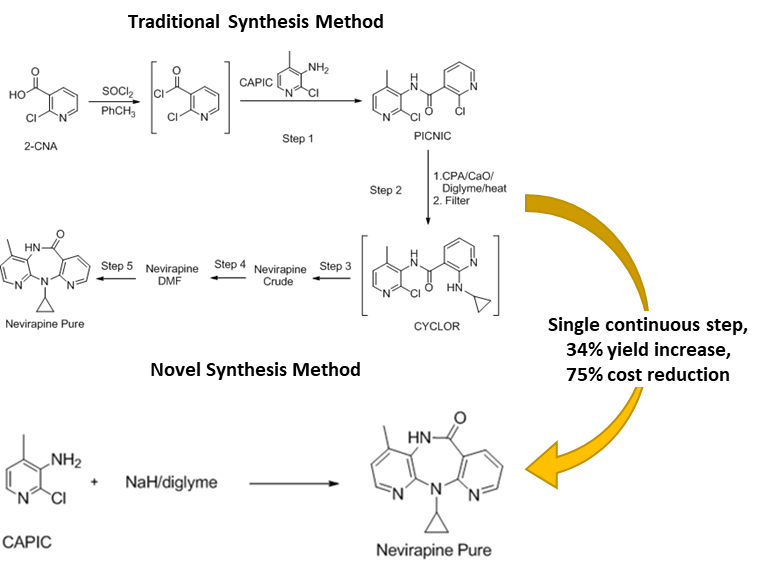Pharmaceutical Production Methods
Efficient Synthesis of Pyridines
Cost effective ingredients for pharmaceuticals
Poly-substituted and fused pyridines are commonly manufactured chemicals which can act as pharmaceutical active ingredients, biological markers, starting ingredients, or potential components of novel materials. Approximately 20% of the top 200 drugs on the market have a pyridine compound as either an active or starting ingredient in their synthesis process. However, it is difficult to synthesize high yields of pyridine compounds. Conventional substituting methods rarely produce pyridines of high quality, which leads to an increase in production costs and a decrease in profit margins. This is especially a problem for generic drugs where the cost of the active ingredient usually accounts for over 90% of the manufacturing costs.
The technology
VCU Researchers have developed a novel and highly efficient mechanism for the manufacturing of pyridine compounds. They have improved the synthesis of halo-substituted nicotinonitriles by incorporating a dehydrating agent, which slows the dimerization of the starting ingredient. This leads to a pronounced improvement in the yield of the final products.
As an example, the inventors have successfully used this novel method to streamline the manufacturing process for Nevirapine, a common part of combination drug therapy for HIV. They have reduced the production process from a five-step batch process to a single continuous step using flow reactors with a projected production cost reduction of 75%. Yield has increased from 58% to 92%.

